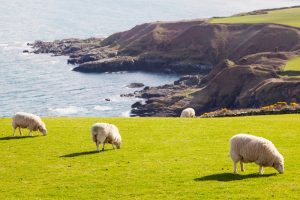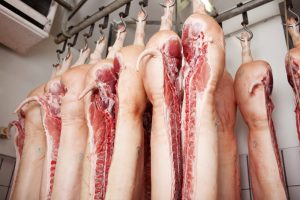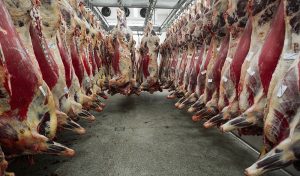Just confirmed today, the requirement for veterinary visits attestations for export certs pushed back another year to 13/12/23
Certification of ‘regular vet visits’ for EU exports or NI movements
Date issued: 16 November 2022
Purpose
To inform Official Veterinarians (OVs) and other veterinary certifiers that for export of Products of Animal Origin (POAO) to the EU, the EU requirement for farms of origin to have a regular veterinary visit can be certified as follows:
i. Until 13 December 2023, this EU requirement can continue to be certified based on a farmer declaration.
ii. After 13 December 2023, farmer declarations will no longer be accepted and this EU requirement must be certified based on other evidence such as membership of a recognised farm assurance scheme or via a valid veterinary declaration.
The relevant official Notes for Guidance will be updated in due course to reflect this 12-month extension to the previous temporary policy.
Background
1. The EU Animal Health Regulation (Regulation (EU) 2016/429) created a new
requirement for farms producing animals or products of animal origin or germinal
products for export to the EU (or movements to Northern Ireland under the conditions
of the Northern Ireland Protocol) to be subject to ‘regular’ veterinary visits.
This is implemented by Article 8(e) Delegated Regulation 2020/692.
“must receive regular animal health visits from a veterinarian for the purpose of the
detection of, and information on, signs indicative of the occurrence of diseases,
including those listed diseases referred to in Annex I relevant for the particular species
and category of animal, germinal product or product of animal origin and emerging diseases.
Such animal health visits shall take place at frequencies that are
proportionate to the risks posed by the establishment concerned.”
2. Official Veterinarians (OVs) have had to certify compliance with this new requirement
since 15 January 2022.
3. Farmers only need to comply with this requirement if they are providing relevant animals
or products for export to the EU or for movements to Northern Ireland.
4. The regular veterinary visit requirement can be certified if the farm of origin is a
member of a recognised assurance including Red Tractor, Welsh Beef and Lamb
Producers and/or Quality Meat Scotland. A list of qualifying farm assurance schemes
has been published and will be reviewed on a regular basis.
5. The regular veterinary visit requirement can also be certified on the basis of a valid
veterinary declaration. A template Establishment Veterinary Visitation Declaration for
this purpose can be found on APHA Vet Gateway (ET242).
6. Until 13 December 2023, for farms that are not part of a recognised farm assurance
scheme and are not able to provide a valid veterinary declaration, a farmer declaration
can instead continue to be used to support certification of the EU ‘regular veterinary visit’
requirement. This can be provided via the Food Chain Information (FCI) document.
7. Farmers must use the available time to choose either to exclude their animals or products
from EU export, join a recognised farm assurance scheme or obtain an appropriate
veterinary declaration.
8. Defra will work closely with Official Veterinarians, the Royal College of Veterinary
Surgeons, farmers, markets and exporters to facilitate, where required, provision of
veterinary declarations to certifying OVs. We will issue further guidance in due course.
Action
Official Veterinarians (OVs) and certifiers providing Support Health Attestations at abattoirs
should note the updated guidance on certification of the EU requirement for regular
veterinary visits.
For further information please contact [email protected].
Gov.uk


